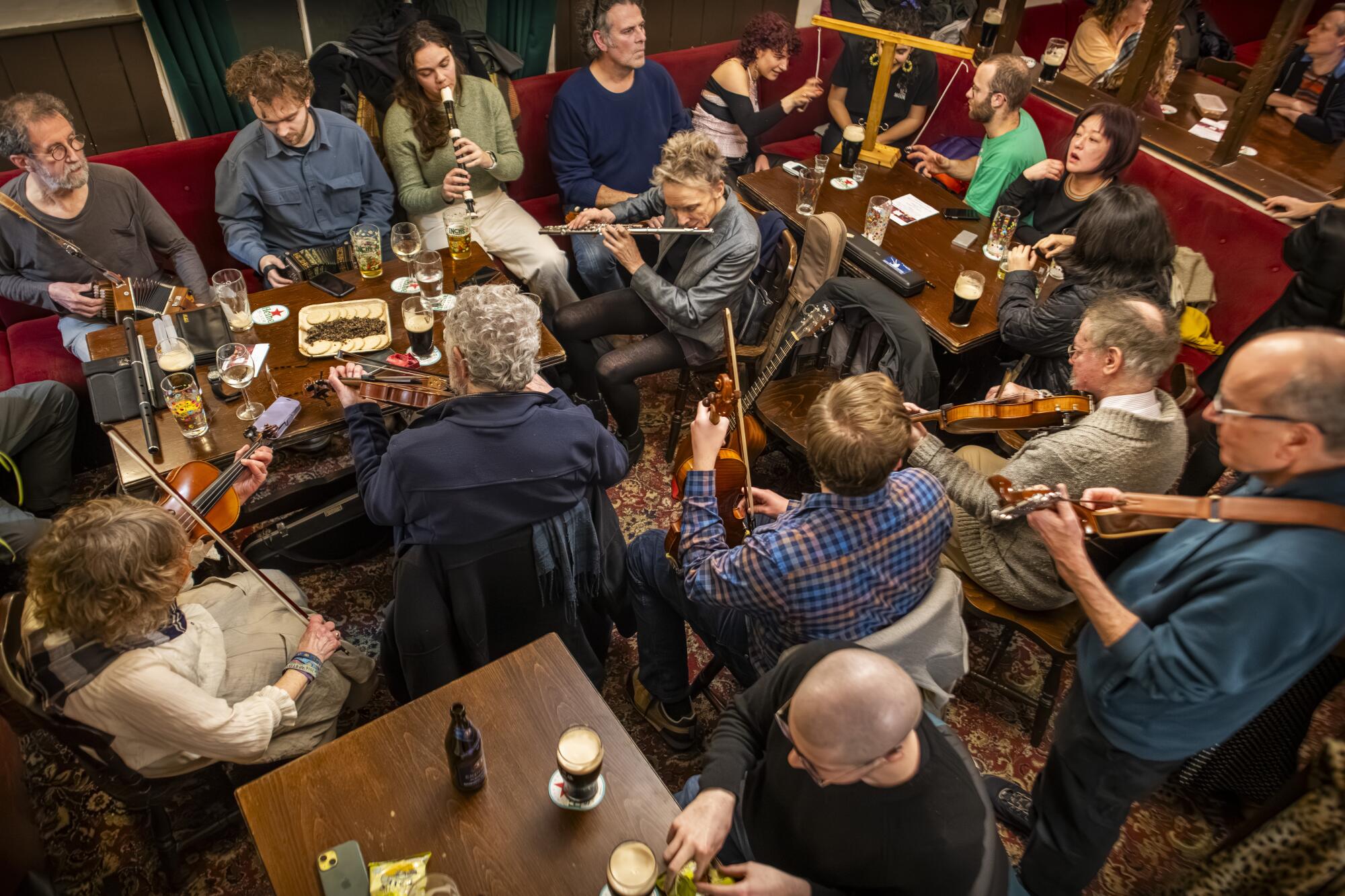
- Share via
LONDON — Over the bar of a 200-year-old pub in southeast London hangs a sign: “For the people of East Greenwich, by the people of East Greenwich.”
What might sound like a pithy slogan is in fact the truth. The Star of Greenwich, which almost closed for good last year, has been saved by the local community after three residents — all of whom hold down full-time jobs — came to the rescue of their “local.”
“Once these things go, they never come back,” says James Gadsby Peet, who banded together with two friends to take over running the pub. It’s not the drinks that matter here, he says, but preserving “a community space for people to come together.”
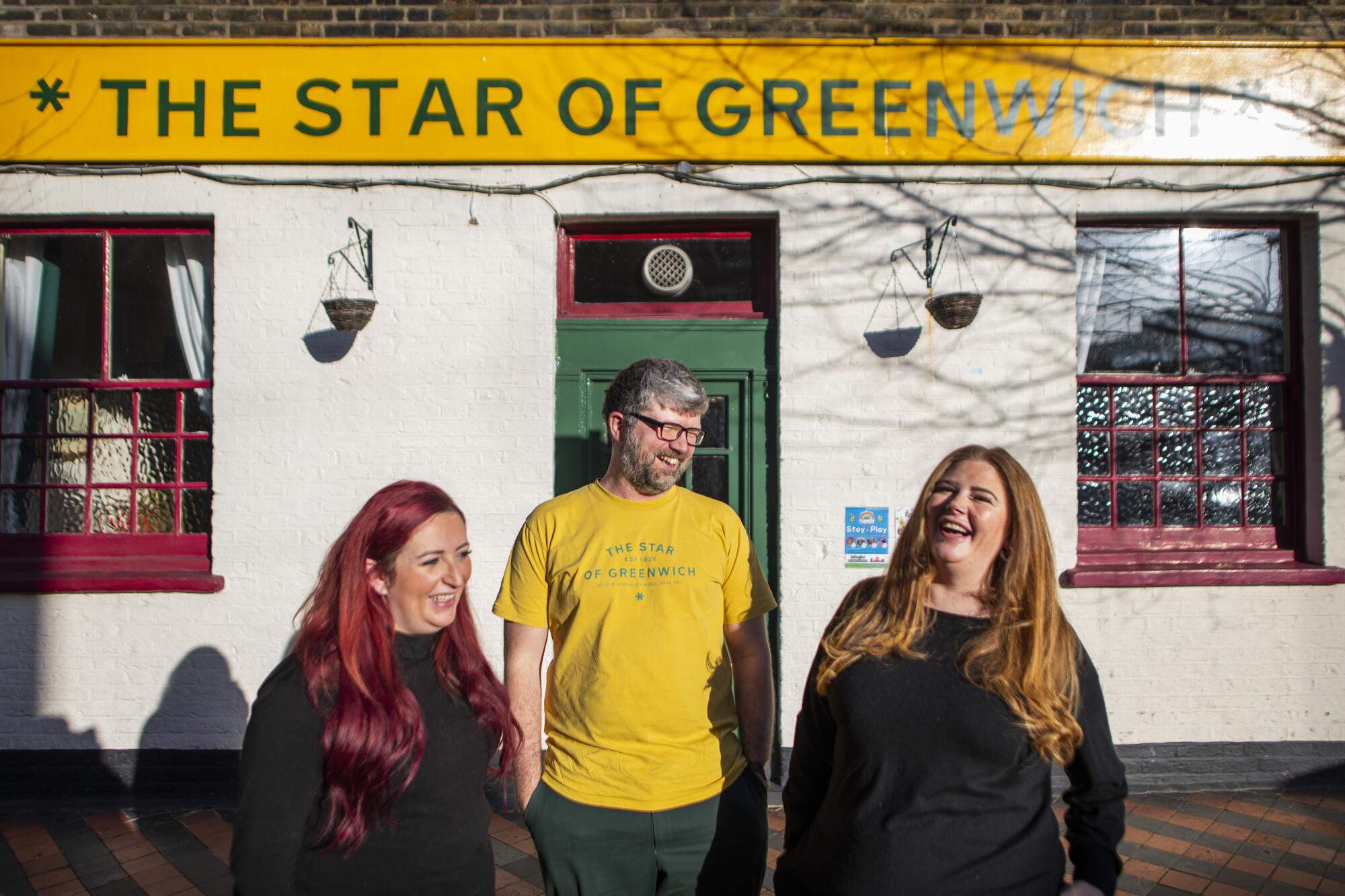
Had the trio not resolved to save the Star, it would have become one of the many taverns in the British capital that closed at a record pace last year. Hit by a stubborn cost-of-living crisis and post-pandemic economic woes, 383 London pubs called for last orders in the first six months of 2023, compared with 380 in all of 2022.
Earlier this month, four sister pubs in central London — including one believed to have been frequented by two of Jack the Ripper’s victims — were put up for sale, highlighting the struggles of an industry synonymous with British life.
The Star (formerly the Star and Garter, before the new team renamed it) has been serving up pints since the early 1800s, with the dark wooden beams inside believed to be from its original construction. But even its long history wasn’t enough to guarantee its future until the community rallied around it.
Pubs across Britain, not just in London, are suffering a worse fate. Government figures show that from 2000 to 2019, the last full year of business prior to the COVID-19 pandemic, 13,600 pubs around the country, or 22% of the total, shut their doors for good. Last week, the British Beer and Pub Assn. warned that, without economic support, a further 2,000 may be gone by the time this year is out, potentially leading to 25,000 jobs lost — and 288 million fewer pints poured.
Aside from financial pressures, pubs — long the social glue in British communities — are increasingly falling victim to shifting work and leisure patterns. “Old boozers,” as they are affectionately known, are struggling to compete in a world where people work from multiple locations at variable hours and have myriad entertainment options on their phones and computers.
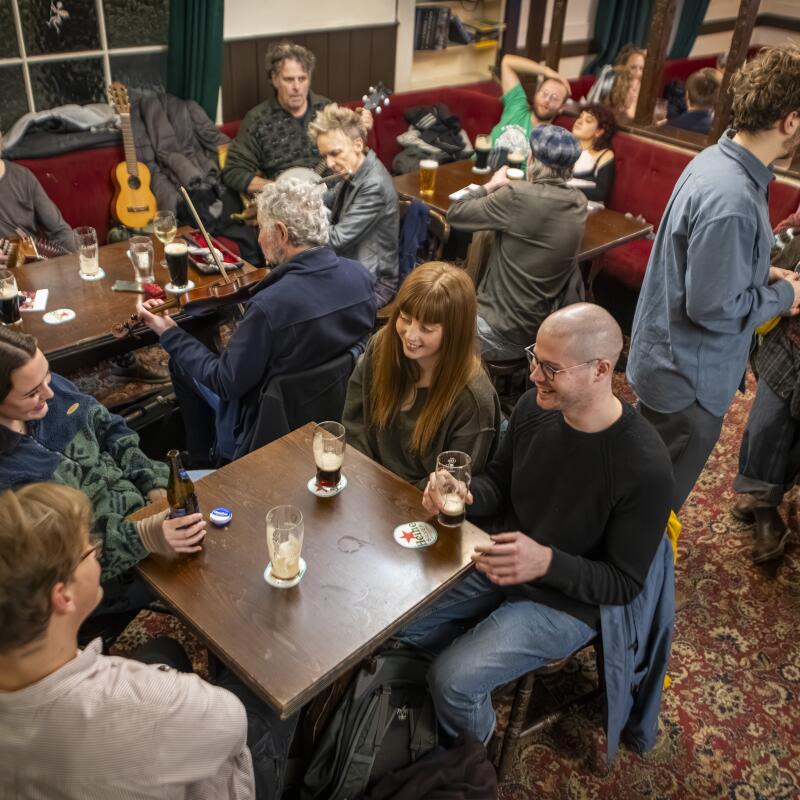
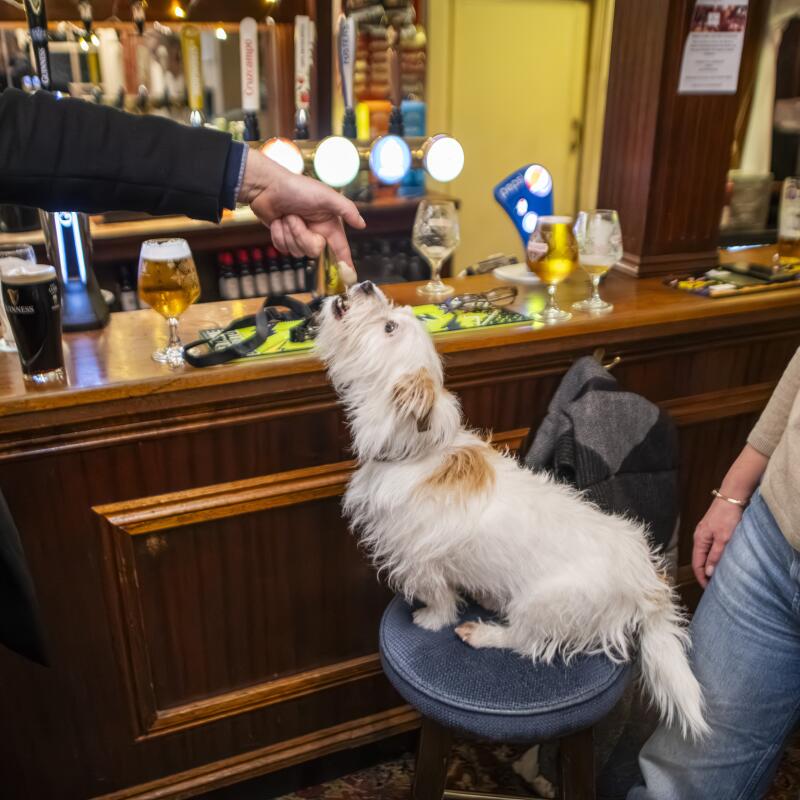
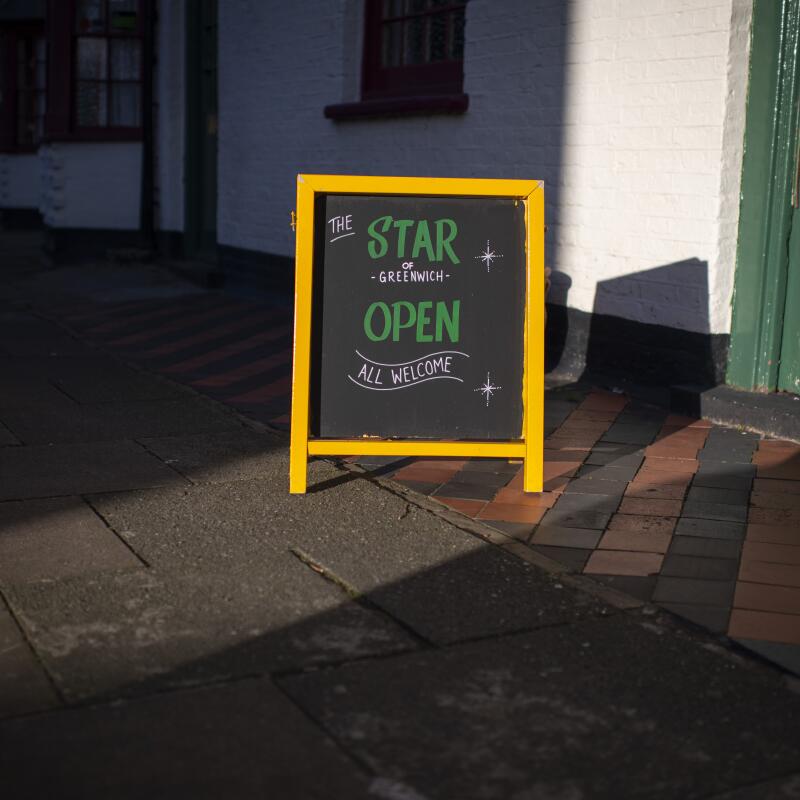
1. Musicians and patrons chat at the Star of Greenwich. James Gadsby Peet said he decided to help run the pub to preserve “a community space for people to come together.” 2. Rolo enjoys some beer at the Star of Greenwich. 3. The Star of Greenwich was on the verge of closing down before the community stepped in to save it. (Photographs by Joshua Bright / For The Times)
Charo Havermans, a historian at University College London who studies the role of pubs in public life, says that such establishments remain vital and inclusive gathering spots in an age when religion is in decline and communication is increasingly virtual.
“There’s a true sense of community that falls away when pubs disappear,” she says. “You lose a sense of history.”
Given the crucial role that pubs have played in local neighborhoods, it’s perhaps no surprise that some communities have stepped in themselves to keep the lights on.
When the Step pub in north London closed in 2020, there was an outcry as property developers tried to take it over, leading Dan Jones, a resident of four years, to consider a different solution: “Why don’t we try and buy it as a community?”
He began handing out fliers and, in a matter of weeks, “very quickly realized there was a large appetite” to enact his plan. Hundreds of people pledged to invest in a fundraising campaign, and within four weeks, the effort raised $357,000 — far in excess of the $319,000 goal — which was topped up by a government grant of $382,000.
“It took us by surprise, the speed at which we were able to raise the money and the fact that we got over target,” Jones says.
He puts this down to the Step being more than just a place to drink. “It was the hub of the area … so people really missed that when that was gone,” he says. “And that’s why there was this feeling to bring it back.”
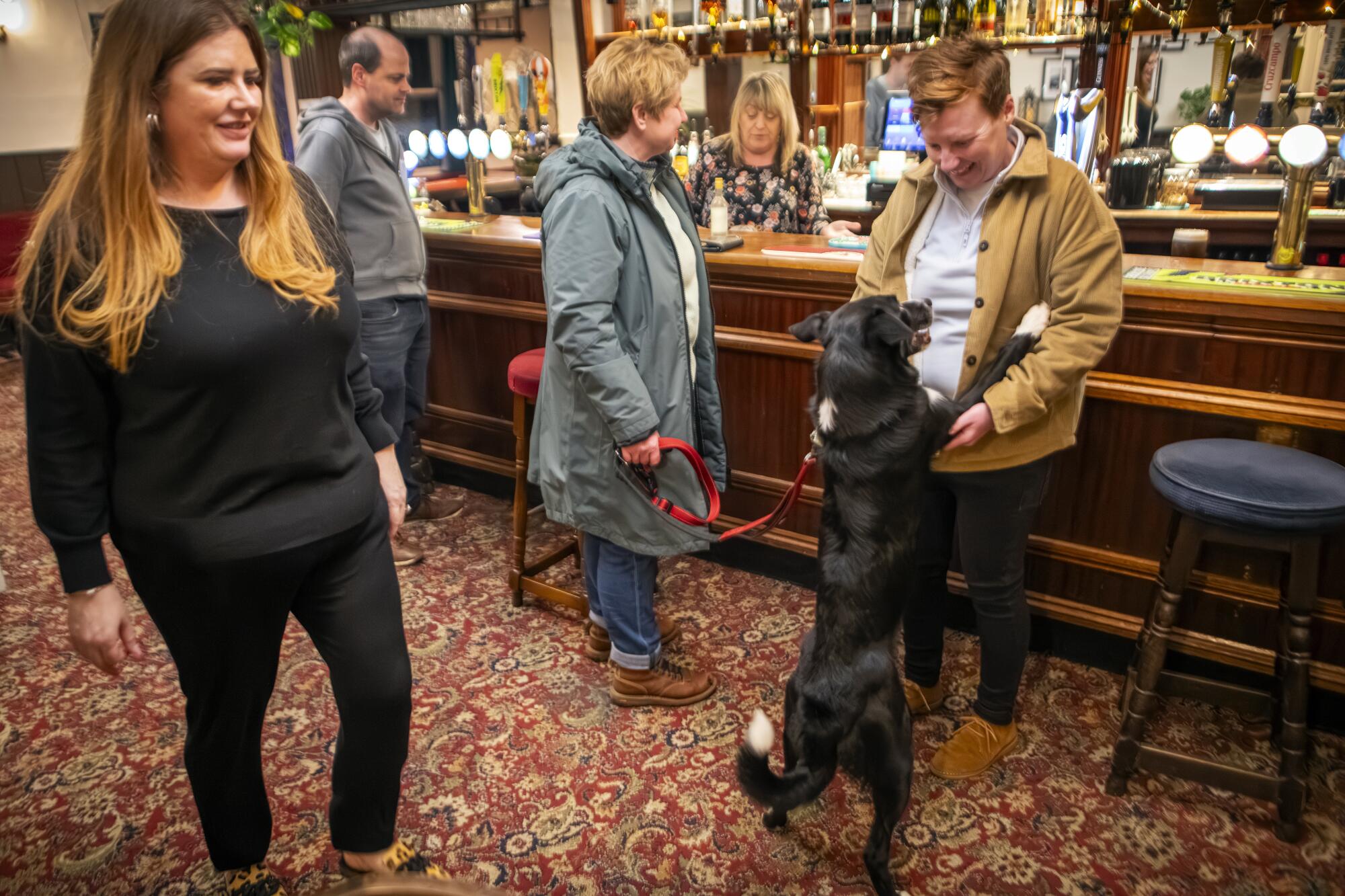
Another pub-saving initiative, CityStack, lets bar-hoppers pay $32 for a special beer mat that gives them $13 off tabs of $25 or more at participating establishments. The discount is good for up to 10 visits.
At the Star in East Greenwich, Gadsby Peet admits that financially, things are “really tight,” even though the community-run pub needs to pay only for behind-the-counter staff, with no management costs, and there is no pressure to turn a profit. Currently, the pub welcomes customers from Thursday through Sunday, as the team “can only open [at] the times we can afford to open.”
Strong business over Christmas has meant that “at the moment, it’s sustainable,” he says, though “you never quite know what’s going to happen.”
The crowd on a Saturday night is a mixture of friends, a smattering of solo drinkers and a young couple on a date, mulling whether to head to the jukebox or dartboard. The bar staff knows regulars by name and is primed for chitchat in a part of London best known for its role in maritime history and as the birthplace of notable Tudors, including Henry VIII.
The pub was open until 2021, when its license was suspended following a stabbing outside. After news circulated that the building was to be sold, Gadsby Peet and Kirsty Dunlop fell to chatting at the gates of their children’s school and resolved that, together with another friend, Lisa Donohoe, they would put together a proposal to save it.
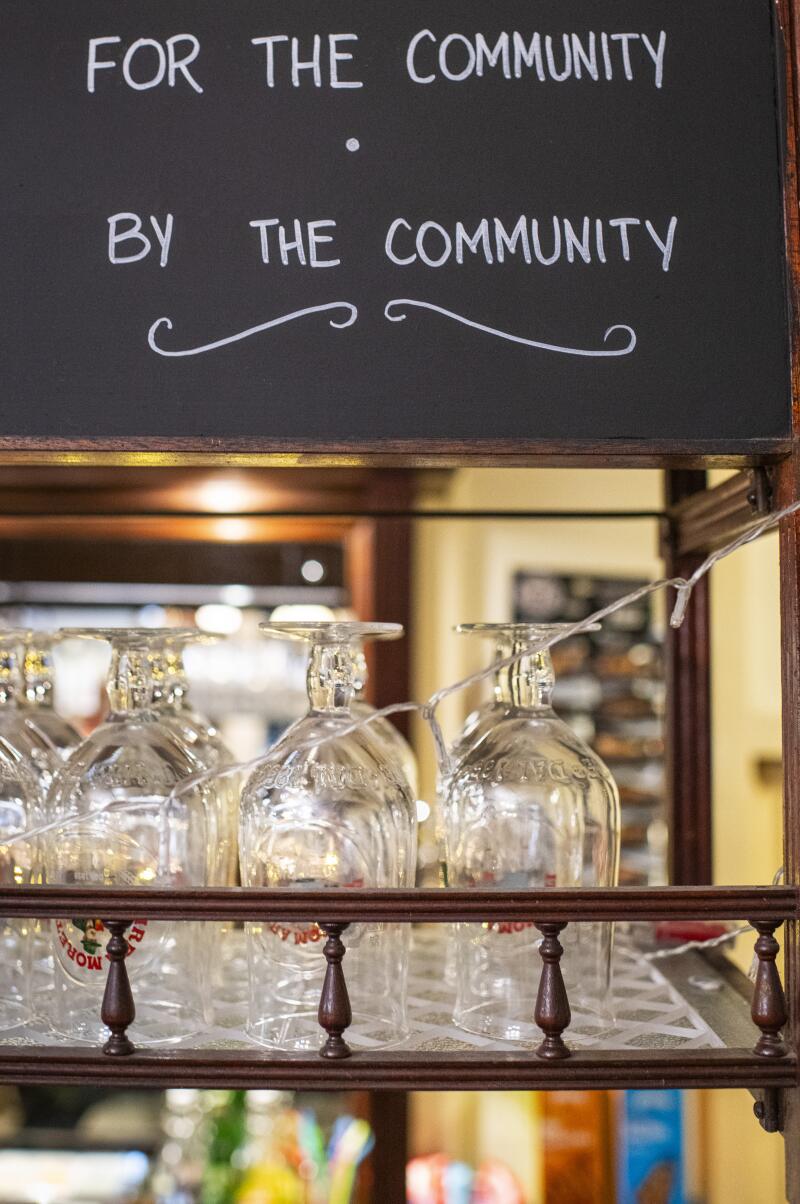

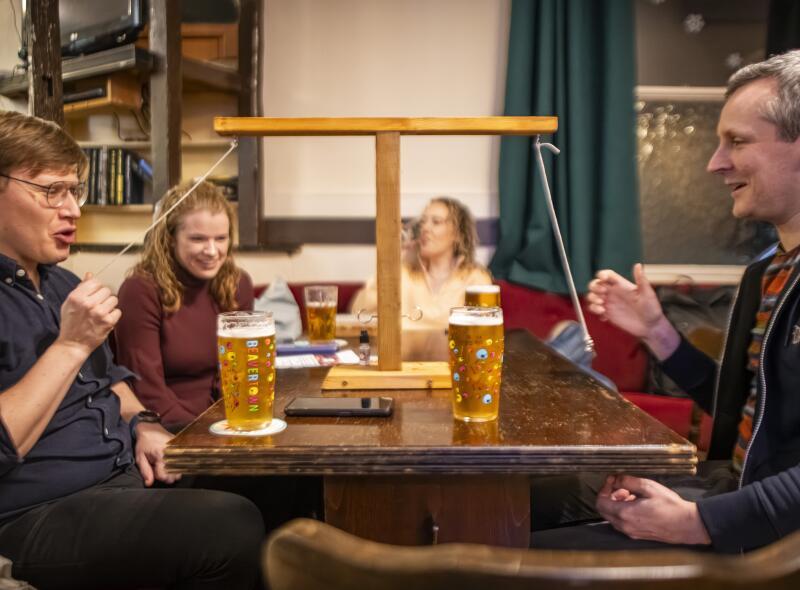
1. A sign above the bar at the Star of Greenwich pub. 2. Pete Ribers throws a dart at an old board still bearing the previous name of the Star of Greenwich. 3. Alan Campbell, left, and Rob Calnan play the ring and hook game. (Photographs by Joshua Bright / For The Times)
The building’s owners “bought into the vision,” Gadsby Peet recalls. “They saw this as a great way that they could use some of their assets for community good.”
The team still has to make sure that rent for the premises is paid each month. Gadsby Peet admits that juggling the Star, his job as director of a web design agency and his young family has been more challenging than he imagined.
“At the beginning you don’t realize how much [work] it’s going to be, so the first thing is just, ‘We’ll send a couple of emails,’” he says. “And before you know it, you’ve got a lot of people interested.”
His main measure of success comes at the end of the week, when in the Star he “see[s] people who are working on the railways … next to people who are working in Canary Wharf [a business district] … next to people who have been drinking here since the ’50s. That, for me, is where the really great stuff happens.”
Pat Murray, 86, has been a loyal customer since his early 20s. He recalls coming to the pub when he and his wife “were courting. I’ve since brought my children, grandchildren and now great-grandchildren into the pub. It’s a family tradition for us.”
Keeping prices low — a pint of beer costs from $6, compared with $9 at many London pubs — and offering the space for free to community groups and activities including kids’ clubs, Italian classes and local folk musicians has eased concerns about gentrification and fostered new connections, Gadsby Peet says.
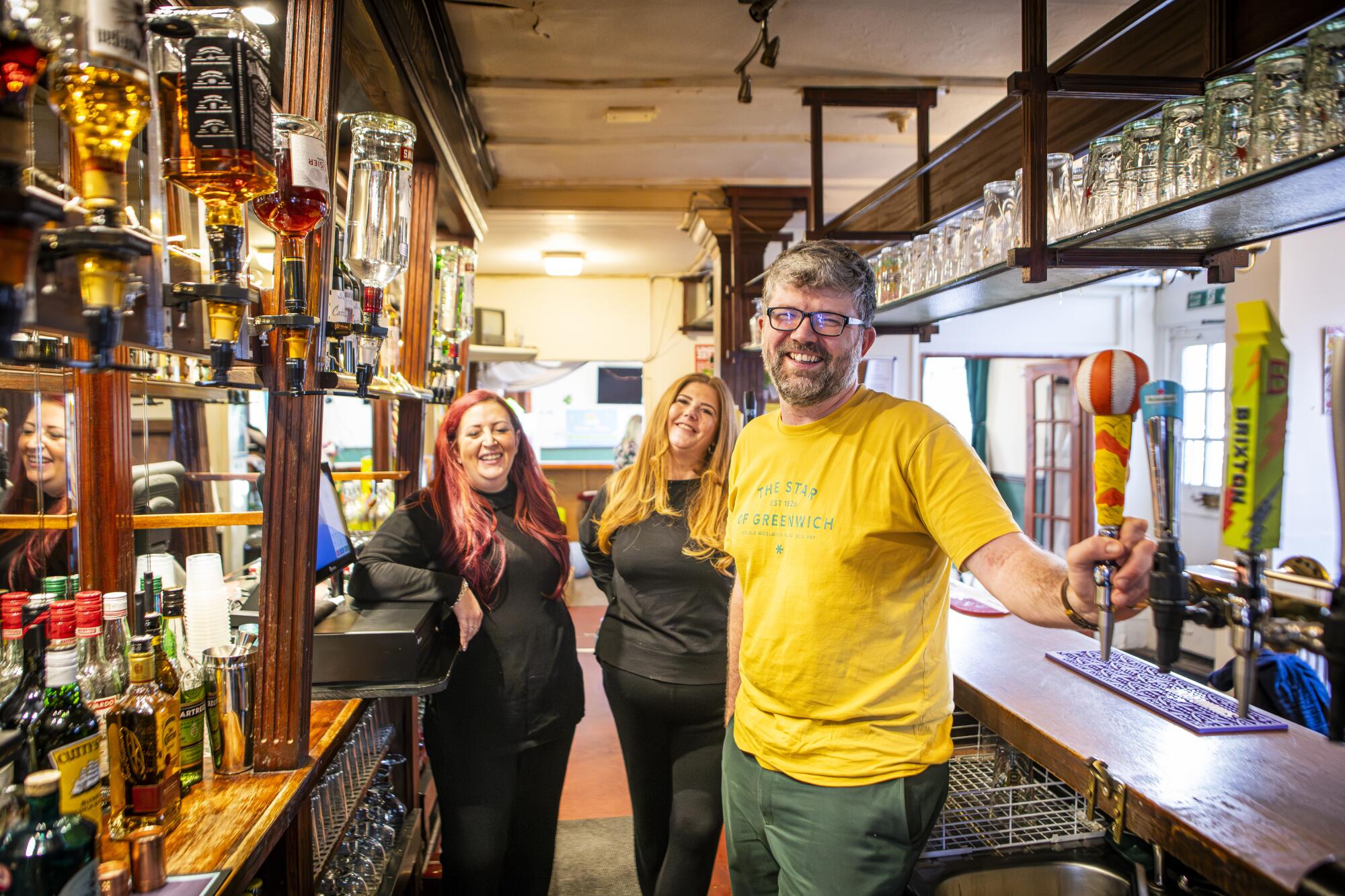
He adds that throwing the Star’s doors open to a wider group has allowed locals “to meet people that they wouldn’t otherwise run into. We think the more that that happens, the more cohesive the community becomes, the nicer a place it is to live.”
A September report by Co-operatives UK, an organization that represents cooperative businesses, showed that they play “a significant role in community development” and that community-owned pubs have increased by 62.6% in the last five years.
But some pubs in London’s commercial centers have found it harder to weather the current storms. The rise of remote working, with many employees now going into the office only on Tuesdays, Wednesdays and Thursdays, has significantly slashed footfall in neighboring hospitality businesses. Late last year, figures showed that office occupancy in Central London had reached its highest level since the pandemic, at an average of 50.9% — but that is still 10% to 30% lower than before the coronavirus hit.
When the first national lockdown was announced in March 2020, “everybody thought it was just going to be a blip,” says Lorraine Crawford, who took over the Centre Page tavern near St. Paul’s Cathedral, in London’s historic financial district, in 2005. But her business “overnight just took a nosedive. … It never ever really gained momentum again.”
Crawford and her husband, who had by that stage been in the industry for four decades, “tried everything” to keep the place afloat, she says, but paying $127,000 per year in rent, along with $45,000 in business taxes, was “horrendous. We were getting in debt all the time.”
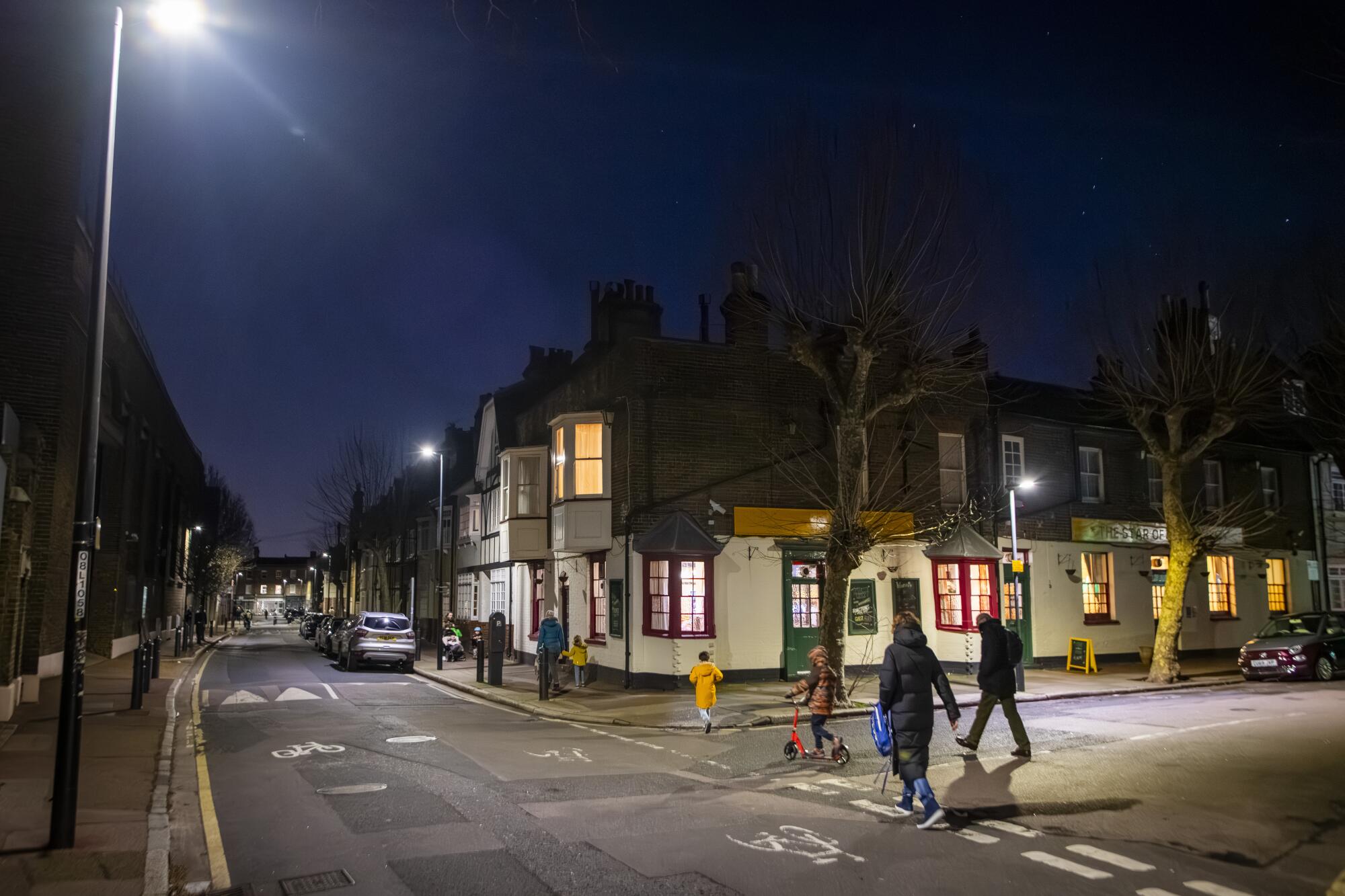
Add the inflation on alcoholic drinks — which late last year reached 9.9%, the highest since the early ’90s — and the only thing left to do “was back out of it gracefully, which was so sad,” Crawford says. “We were more of a family because we were just a small business.”
The Centre Page closed more than a year ago.
“In our industry, nothing has gone back to being the same,” Crawford laments. “And I don’t think it ever will.”
Lytton is a special correspondent.
More to Read
Sign up for Essential California
The most important California stories and recommendations in your inbox every morning.
You may occasionally receive promotional content from the Los Angeles Times.












